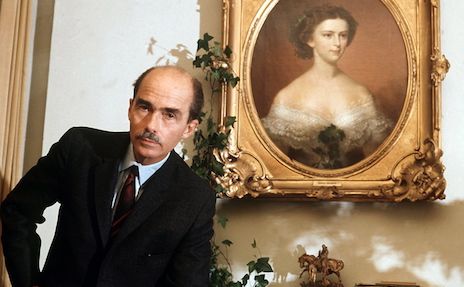2018 European perspectives
Today’s ruling elites of Europe have renounced its new political movements as “nationalist” and “populist,” and accuse some member states of no longer following democratic principles. In reality, though, it is Brussels’ overreaching ambitions that bring up the specter of autocratic rule in Europe.

In a nutshell
- Current EU elites seek to replace the patriotism of European nations with an overreaching technocratic nationalism
- The foundations of freedom, subsidiarity and regional diversity are endangered in Europe
- Demonizing new political movements and democratically elected governments, inside or outside the EU, is authoritarian
If you want to see the European spirit at work, look at how Europe really functions. This shows clearly that the European spirit exists not despite the continent’s diversity, but because of it. Undergirding the complex construction are common cultural roots.
Last year appears to have been rather good for Europe. In 2017, its economy gained traction, immigration flows receded, and tensions with Russia did not make big headlines. Even the problem of government overspending has been camouflaged, at least for the time being, by the loose monetary policy of the European Central Bank.
In politics, however, disruptive tendencies are evident. Nationally, established parties are fighting the so-called nationalistic and populist movements. On the European level, some governments are branded as “autocratic,” “populist” or “nationalist” and marginalized. On the global level, Europe has resorted to excessive regulation to shield its economy, which undercuts its global competitiveness and adds to protectionist tendencies. It also antagonizes trade partners, by imposing “value standards” on commerce, and political partners with an arrogant usurpation of ethical superiority. The values behind these practices are not necessarily shared by Europe’s own societies, not to mention members of other cultures.
Imposing happiness
As a result of “harmonization” – a policy born of Europe’s technocratic hubris – many regional solutions and time-honored habits are being abolished. Under the guise of fighting nationalism, the European Union seeks to replace regional European patriotism with a sort of a dreary technocratic nationalism. In this context, it is worth remembering Charles de Gaulle’s brilliant definition:
“Patriotism is when love of your own people comes first; nationalism, when hate for people other than your own comes first.”
The so-called populist movements in Europe are nationalist only on the surface. In reality, their members reject harmonization and are motivated by patriotic feelings, the source of the strength of Europe’s liberal and tolerant tradition.
Certain European countries are taunted today as autocratic. But looking closer, the EU itself, with its overreaching ruling elite, has become quite authoritarian. This elite in Brussels and in some member countries seeks to decide what is best for the population and to “make Europe great.” However, this way of imposing happiness on citizens severely limits their personal freedom and freedom of choice.
The foundations of freedom, subsidiarity and regional diversity are endangered in Europe.
Archduke Otto von Habsburg (1912-2011), the eldest son of the last Austro-Hungarian emperor and longtime member of the European Parliament, dedicated his life to peaceful integration of Europe after World War II. He used to warn about politicians who promise a paradise on earth. This was paving a direct way to hell, the Archduke insisted, as the world was not perfect and never would be. That basic fact has never stopped leaders from promising a perfect society, however. Marxism was a terrifying example of where such folly leads. Today, this dangerous quest is taking the form of ever-increasing Zustandigkeiten – competencies assigned to the state. The process limits individual freedom gradually, slice by slice.
The Archduke formulated his warning some 40 years ago. Today, the foundations of freedom, subsidiarity and regional diversity are endangered in Europe. When liberalism and Christian tolerance are sacrificed for expediency, the emergence of so-called populist parties is a consequence.
The EU’s technocratic regime gives the established political parties a comfortable base. Instead of upholding the principles of freedom, subsidiarity and diversity, these old parties are constantly moving toward the eerily familiar politics of the left – expediency and control. Based on self-defined values and excuses of political correctness, popular movements that oppose this trend are subjected to fierce defamation. Political diversity and fact-based debates, even when the language is harsh, are essential parts of any political culture geared to the preservation of freedom. On the other hand, demonizing new political movements and democratically elected governments, inside or outside the EU, is authoritarian.
Its consequences for freedom in Europe will be dire.
The danger stems not from the allegedly populist and nationalist movements in Europe, but rather from today’s technocratic establishment clinging to power and claiming to be the sole provider of prosperity and happiness. As in the old Soviet system, the loss of freedom will spur a rapid decline in competitiveness, growing economic misery in the officially more egalitarian societies, and the rise of an almighty political nomenklatura.
Europe should take advantage of its current economic upswing and relative political calm to return to its bedrock liberal principles. These principles, anchored in the philosophy of freedom and individual responsibility, have made Europe strong and prosperous.
These should be my wishes for New Year 2018.
